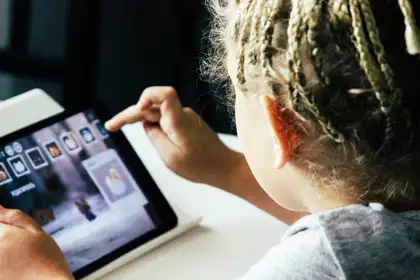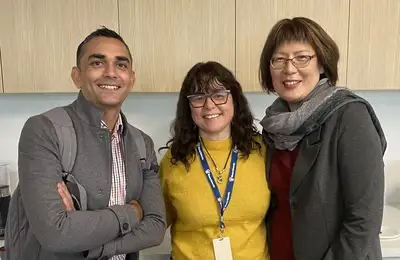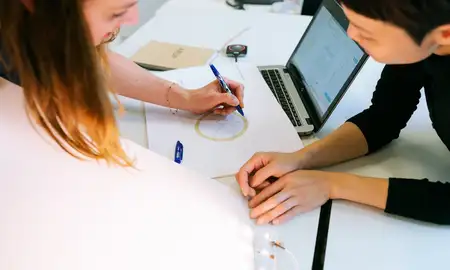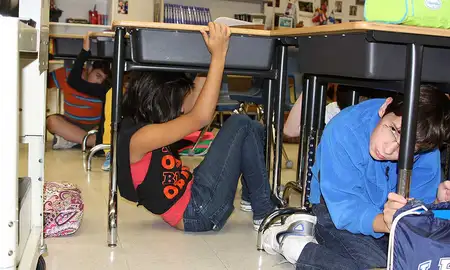
Studies have shown that an integrated, scaffolded, intentional and informed use of smartphones and technologies can have a positive impact on the learning process and the learner.
We live in a digital age. Technology impacts every facet of our lives. For the young generation, smart devices are a part of their digital identity. A mobile device is the only technology that is perhaps fully embedded in our everyday lives.
With the recent announcement of the National Party policy on banning phones in schools, some media news have cited the UNESCO—Technology in education: A tool on whose terms? report justifying the move. The media seems to have interpreted the report as advocating for a blanket ban in schools, linking poor learning outcomes to the use of smartphones in class.
The over 400-page report, however, is not so much about banning phones in schools but rather about the informed and considered use of phones that can make a difference to learning and the learners. UNESCO’s summary on the use of smartphones begins with, "A call for technology only to be used in class when it supports learning outcomes, and this includes the use of smartphones."
The report captures the multifaceted nature of smartphone use in schools for learning and the complexities of embedding them in the curriculum.
Since the mid 2000s, smartphones and smart devices have become increasingly popular and intertwined into part of daily living due to their affordances such as connectivity, mobility, ease of use, multimodal interaction and creation and media types.
There has been a history of robust mobile learning research (research into the educational use of smartphones, tablets and other smart portable devices to enhance learning and teaching) conducted to evidence ways teachers and learners can maximise the affordances of these devices to support diverse learners.
Smartphones and devices are not a problem in their own right, it is the deeper issues of how they are perceived and implemented in schools or classrooms that are a cause for concern.
Banning phones from schools will only generate the need for learning digital skills elsewhere, or enforce and widen a knowledge gap, epitomising everything that is wrong about technology, for example, misinformation, disinformation and lack of digital literacy. This is detrimental to the learner’s digital practice, identity and learning as reported by the NZ Herald in this recent article.
In contrast, several studies have shown that an integrated, scaffolded, intentional and informed use of smartphones and technologies can have a positive impact on the learning process and the learner.
Many schools in Aotearoa have constructive ‘screen time’. At any other time, phones are stored away. Remarkables Primary School shows an excellent example of how smart devices, augmented and mixed reality can be used to enhance learning. We need more of these success stories.
To achieve this, more resources and support are needed for teachers to develop and use their professional judgement. This will help them purposefully integrate mobile devices into everyday class activities, and in so doing productively guide the learner and the learning process.
If our learners cannot learn or will not have the time to learn about the effective and constructive use of digital technology and smart devices in schools, where else will they?
We can no longer ignore the important role of technology in our lives and society. Rather than banning mobile devices in schools, we need to step up and address the backlog created by ignoring their affordances. Banning smart devices would be an easy solution but one that would create bigger challenges for our learners in later life.
We need to critically embrace and embed these devices in our curriculum in order to build lifelong skills, such as time management, self-regulation, critical thinking, self-determination and digital wellbeing. Our learners need to learn about digital safety and human etiquette, values and principles to inform our ongoing use. Banning will only delay the inevitable.

From left: Senior Lecturer Vickel Narayan, Associate Professor Lucila Carvalho and Associate Professor Elaine Khoo.
Now is the time to focus on working with our learners on building digital literacy skills for dealing with and minimising cyberbullying and the pending avalanche created by digital radicalisation driven by data algorithms, or the opportunities digital devices create for surveillance.
At each click or scroll, data is collected and used to inform the algorithms. A government policy that regulates how data is being used, who owns it and how it is shared and made visible or invisible to others would be useful. This would still not negate how we, and more importantly our children, use and interact in different digital spaces. An increased emphasis in school must be placed on learning digital literacy skills and etiquette for self-governance that is informed and guided from an early age.
Just as we embraced pen and paper centuries ago as important tools in human history, we must consider and integrate the affordances of digital tools and technologies to move on with time. Change is the only constant in the modern human era. Change that is driven by the rapid advancements of technology.
For parents and policymakers, smartphones and other technologies may be a distraction, for our children, these tools are a window to the world. A window that they are struggling to open on their own as it requires several critical and informed skills, values and principles. We as guardians need to acknowledge the voices of our children and proactively work with them to identify their needs rather than defaulting to a ‘failsafe’ approach.
We cannot be digital without being digital. We need to consider policies and ways to better empower our learners to reach their potential, to learn from the best and to connect with different ways of knowing and being.
Digital literacies are as critically important as maths, reading and writing, and they need their place appropriately recognised and integrated into practice. We have witnessed waves of digital innovation in the recent past, for example, social media, mixed reality, wearable devices and the Internet of Things, and now we are entering the age of generative (Gen) AI.
We need to look back to look forward to reflect and implement informed changes. We need policies that empower us, are future-focused and inclusive—helping us learn beyond the four walls of the education system.
Vickel Narayan is a Senior Lecturer (Digital Learning) at the Institute of Education, Massey University (Auckland campus).
Elaine Khoo is an Associate Professor (Digital Education) at the Institute of Education, Massey University (Auckland campus).
Lucila Carvalho is an Associate Professor (Digital Education) at the Institute of Education, Massey University (Auckland campus).
Related news
Opinion: Finding a productive way forward with the refresh of the science curriculum
By Senior Lecturer Dr Jared Carpendale.

Research shows room for improvement in schools' emergency preparedness
'Be prepared' are watchwords for all New Zealanders making emergency plans but revealing findings from Massey University's Joint Centre for Disaster Research shows that schools could be doing better.
